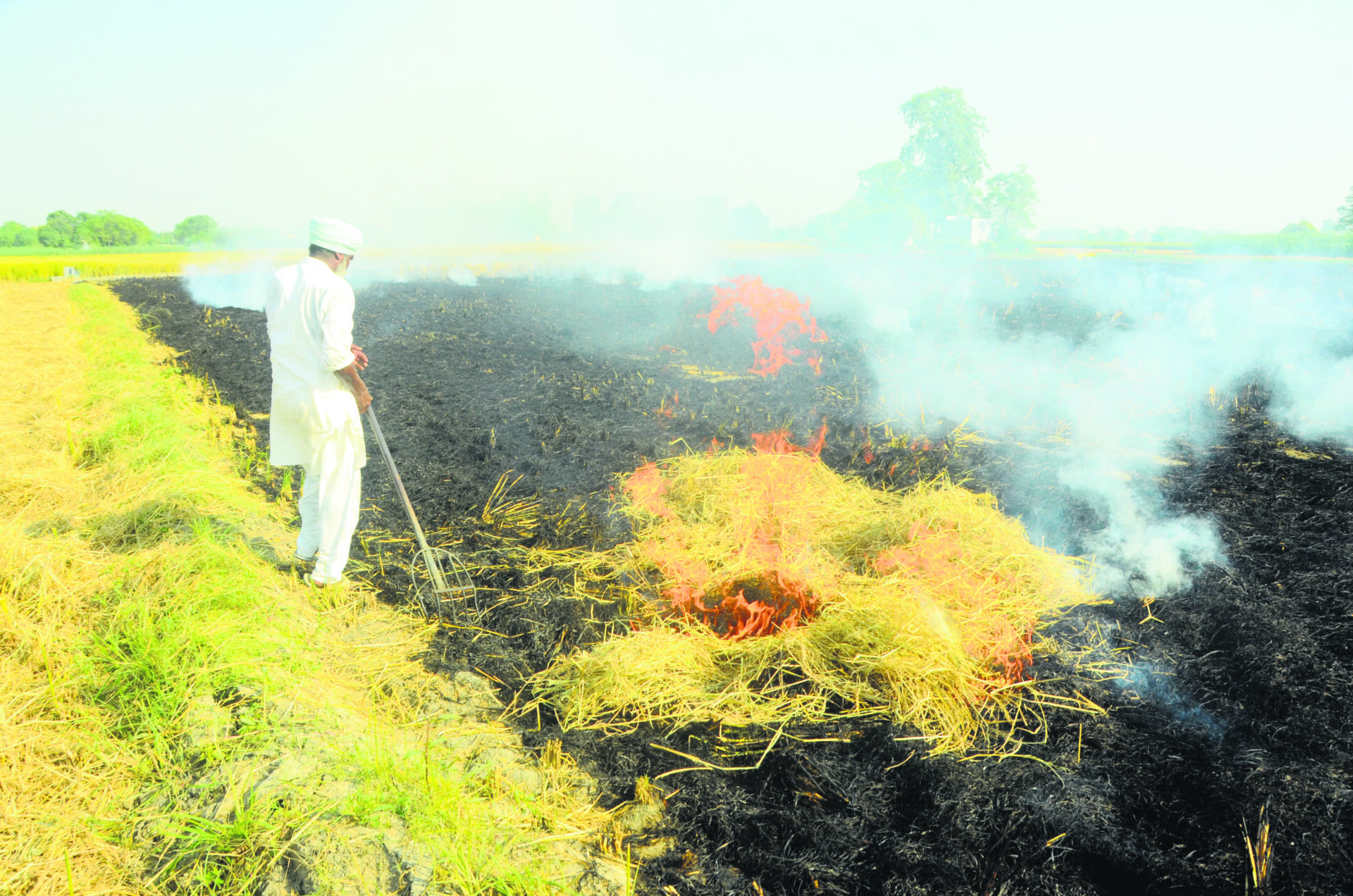Effectiveness and reach of bio-decomposers have always been questioned by some stakeholders.
NEW DELHI
Uncontrolled stubble burning in Punjab and other neighbouring states has poisoned the capital’s air, leaving Delhiites with deteriorating air quality and making it hard for them to breathe.
Since 2020, the Delhi government has been using Pusa bio-decomposer, a microbial solution that decomposes paddy residue in 15-20 days, to prevent stubble burning in the capital. The cost of a bio-decomposer to get rid of paddy stubble would be Rs 30 per hectare. The central government, under its CRM (Cropping System Model) scheme, has released more than Rs 3,062 crore to the Government of Punjab, NCR state governments, and GNCTD during the five-year period from 2018-19 to 2022–23 towards effective management of stubble in the region. Of the total released, more than Rs 1,426 crore have been released to the Punjab government.
Yet, the effectiveness and reach of bio-decomposers have always been questioned by some stakeholders. The Sunday Guardian tried to make sense of the effectiveness of decomposers and why they were thought of as a solution for stubble burning in the first place.
Benefits
Pollution releases a lot of hazardous gases into the atmosphere, including carbon monoxide (CO), methane (CH4), volatile organic compounds (VOC), and polycyclic aromatic hydrocarbons, which can cause cancer. These pollutants spread throughout the environment and have the potential to change chemically and physically, and ultimately produce a heavy layer of smog that is harmful to human health.
Fertility of the Soil: Burning husks on the ground depletes the soil’s nutrients and reduces its fertility.
Heat Penetration: Moisture and beneficial microorganisms are lost from the soil as a result of the heat produced by stubble burning.
Improves fertility and productivity: These decomposers also improve the fertility and productivity of the soil as the stubble works as manure and compost for the crops, and lesser fertilizer consumption is required in the future.
It is an efficient and effective, cheaper, doable, and practical technique to stop stubble burning. It is an eco-friendly and environmentally useful technology and will contribute to achieving the Swachh Bharat Mission.
Drawbacks
One of the major drawbacks that has been pointed out by the farmers is that the microbial solution takes 25-30 days to decompose which affects factors like crop rotation, labour availability, and the type of crop grown. Samita Kaur, an activist, said: “The bio-decomposers are being used by farmers and encouraging the same, as they enhance soil health and promote better yields at a lower cost. They are not practical. They take as long as 30 days to decompose. The next sowing period begins within 10 to 25 days of harvesting.”
A young farmer Kulvinder Singh said, “We hardly have 15-20 days to sow new crops, and the stubble takes approximately 25–30 days to decompose. So, it affects the entire cycle.” Some farmers also pointed out that they haven’t received any bio-decomposers. So, accessibility is also a problem here.

